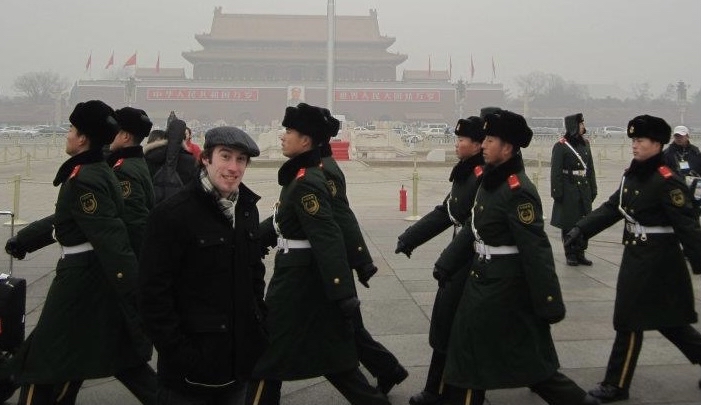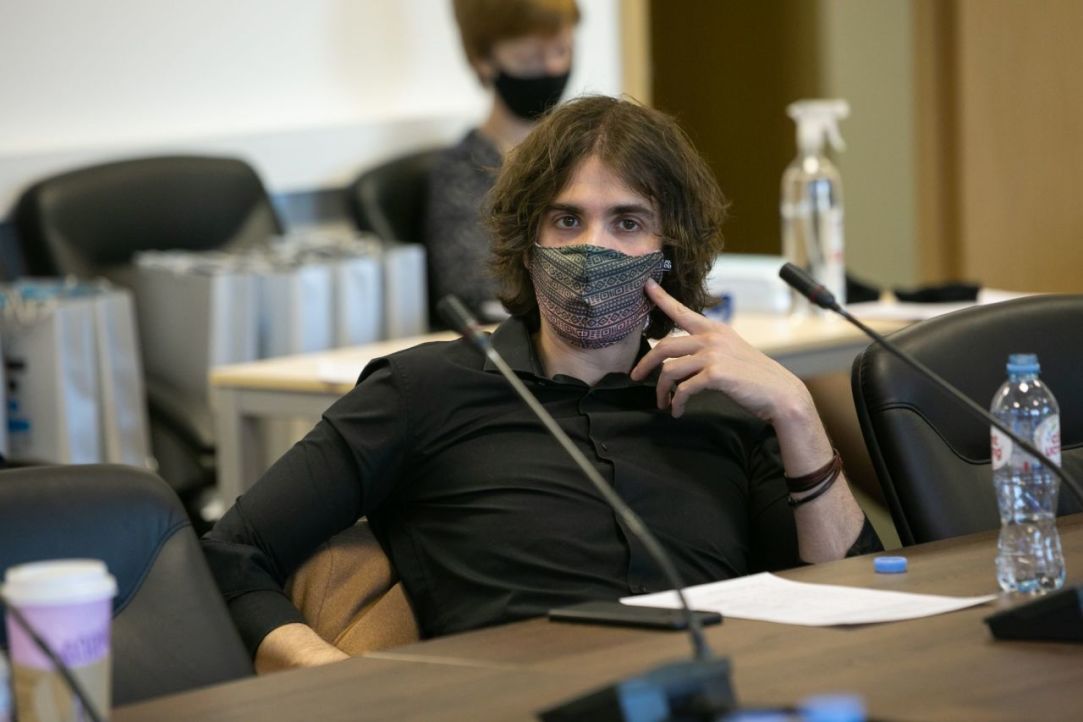
‘Up and Ahead’: Students in New Master's Programme to Study Psychometrics and Developmental Sciences
Enrolment is underway for the HSE Institute of Education’s new Master's programme, Science of Learning and Assessment, which was developed at the intersection of developmental science, advanced methods of neuroscience and psychometrics, and the theory and practice of testing and measurement. Students will learn to assess human development and adjust the learning process, relying on evidence-based approaches of neuroscience and current concepts of measuring skills, personality characteristics, competencies, and other complex constructs.

Educational Inequality: Studying Country-Specific Solutions to a Global Problem
Educational inequality is a universal problem, but it manifests itself in different countries in different ways. Comparing the issue across different contexts is always interesting—even more so if the person doing the comparing has a diverse set of examples to draw upon. Adam Gemar earned his Bachelor’s and Master’s degrees in the US before earning his Doctoral degree at Durham University (UK). Now he is a Postdoctoral Fellow at HSE University’s Institute of Education, where he is studying educational inequality in Russia with the Centre for Cultural Sociology. In his interview, he spoke about his research, life in Moscow, and Russian winters.

'I Am Looking Forward to Lecturing Live'
Peio Zuazo-Garin, ICEF Assistant Professor and a PhD graduate from the University of the Basque Country, joined HSE University at a time when all the usual formats of research and teaching were disrupted by the pandemic. In an interview he told how to adapt to a new place of work online, what are the pros and cons of academic prestige, why he loves Moscow and why he recalls bullfighting during the discussions with ICEF students.

Mirror Labs: A Geographic Effect
The HSE Laboratory for Neurobiological Foundations of Cognitive Development (Neuropsy Lab) is one of 13 winners of the HSE Mirror Laboratories Competition and the only lab headed by an international faculty member. The Neuropsy Lab’s partner institution is the Scientific and Educational Centre for Interdisciplinary Research and Art Technologies based out of Ulyanovsk State University. The HSE Look spoke about this collaboration with the lab’s head – Dr Marie Arsalidou, Associate Professor at the HSE School of Psychology.

‘AI Will Apply to All Activities, Having a Great Effect on Economy’
Artificial Intelligence (AI) has become a fundamental component of many activities in economics and finance in recent years. On April 26,Panos Pardalos, Academic Supervisor at theLaboratory of Algorithms and Technologies for Networks Analysis (LATNA at HSE Nizhny Novgorod) and Distinguished Professor of Industrial and Systems Engineering at the University of Florida, will talk about its impact, future developments and limitations in his honorary lecture Artificial Intelligence (AI) in Economics and Finance.

A Breath of Fresh Year
HSE University postdocs share their thoughts on transitioning from PhD studies, as well as individual and collaborative projects they are currently engaged in. The participants include Adam Gemar and Daria Khlevnyuk (PhDs in Sociology), Nikita Lychakov (PhD in Finance), and Amanda Zadorian (PhD in Politics). We also talked to Ekaterina Paustyan, a postdoc at the University of Bremen and an excellent example of the connecting power of HSE University’s research centres.

‘Feeling Like a Full-Fledged Part of the University Community’
HSE University is focused on achieving leadership not only at the national level, but also internationally, so internationalisation has been and remains a priority area of the University's development strategy. In an interview with the HSE bulletin Okna Rosta, Yulia Grinkevich, Director for Internationalisation, talked about various approaches to internationalising the campus environment, the progress HSE has made in this regard to date, and the tasks that remain in the 2030 HSE University Development Programme.
‘This Year Has Shown That We Are Not Only Able to Develop Quickly, But Are Also Capable of Quickly Overcoming Challenges’
In his annual New Year's video address, HSE Rector Yaroslav Kuzminov wished everyone a happy holiday. 'This year we learned to help each other,' the rector said. 'In the coming year, may we take more delight and make new friends.'

Defending a Doctor of Science Thesis at HSE University under New Procedure
Dean Fantazzini, Deputy Head of the Department of Econometrics and Mathematical Methods in Economics at Moscow School of Economics in Moscow State University and Visiting Scholar at the HSE ICEF, was the first foreigner to defend his DSc thesis at HSE University. We spoke with Dean Fantazzini about his research and cooperation with HSE.

‘We Have to Ask the Very Same People Multiple Times to Understand What Changes in Emotions, Attitudes, and Behaviors Really Take Place’
On November 6, Dr. Klaus Boehnke, Deputy Director of the HSE Centre for Sociocultural Research, presented his report entitled ‘Does COVID-19 propel value change: A comparison of Germany and the United Kingdom?’ at the ‘Culture Matters’ research seminar. HSE News Service has talked to Dr. Boehnke about various aspects of the value changes and socio-economic consequences of the pandemic in Europe and Russia.

